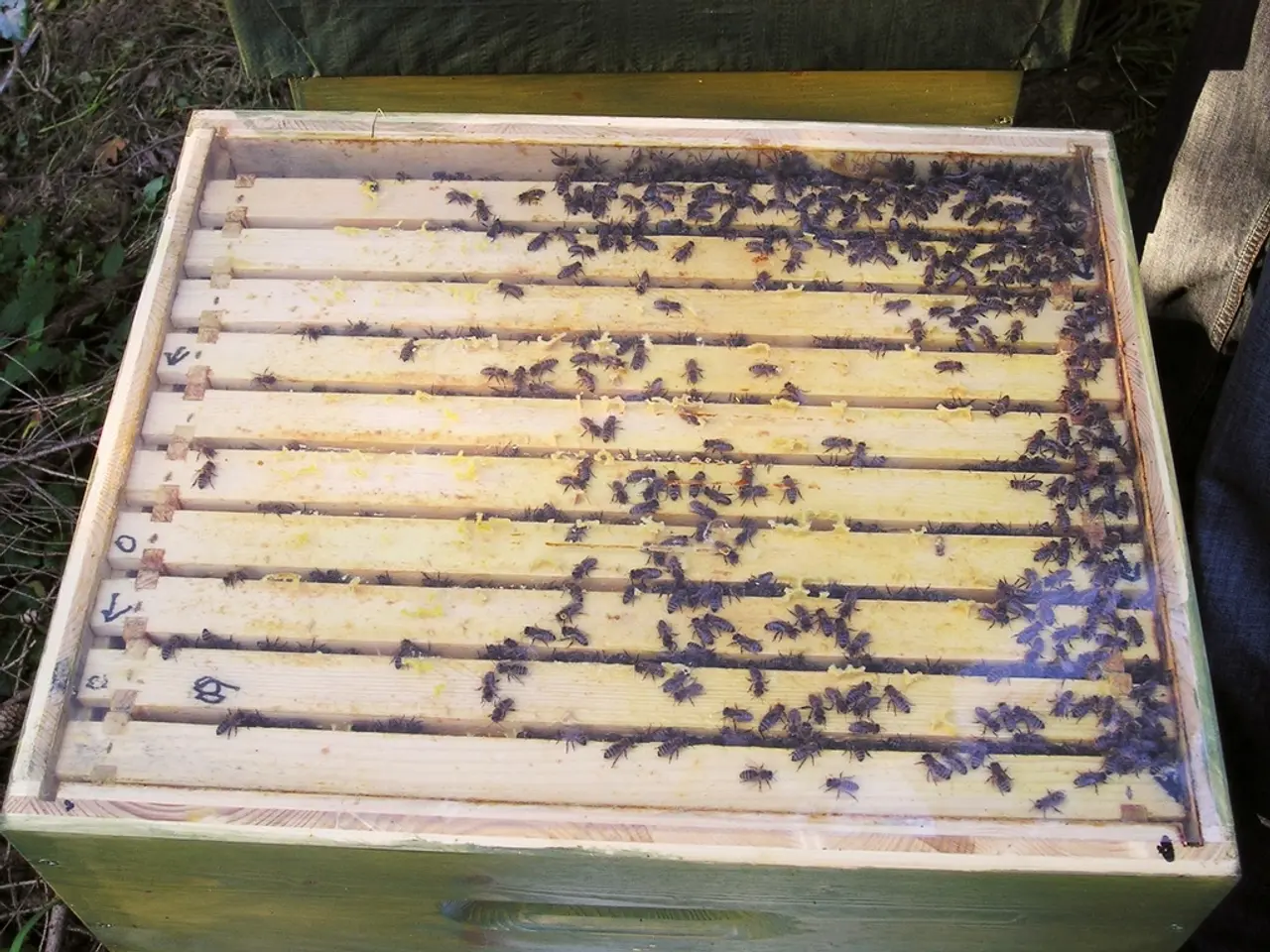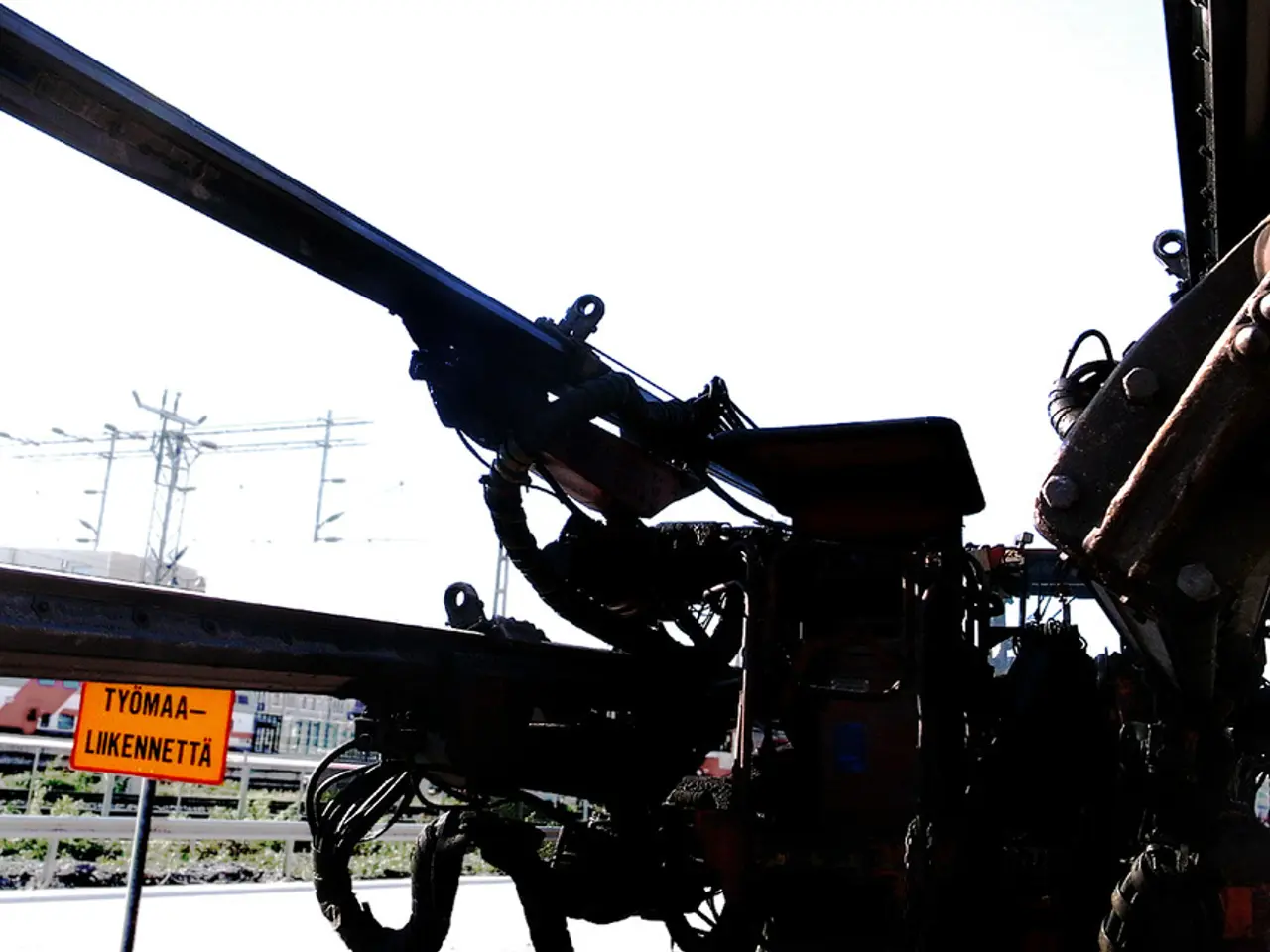FlyBlast files for bankruptcy, acknowledging that their focus on cultivated meat was financially detrimental and led to their downfall.
In the ever-evolving world of food technology, a significant player has recently faced challenges. Belgium-based startup FlyBlast, which aimed to revolutionise protein and lipid production using black soldier flies, has filed for bankruptcy.
FlyBlast's ambitious goal was to genetically engineer black soldier flies (BSF) for insulin and high-value protein production in the cultivated meat industry. This approach presented promising opportunities, such as reducing the cost of cultivated meat production by providing scalable, insect-based biomanufacturing platforms for critical and costly components of cell culture media.
However, the journey was not without its hurdles. The nascent, capital-constrained cultivated meat market, coupled with the difficulty in pivoting to other sectors quickly enough, proved to be formidable challenges for FlyBlast. The startup successfully developed multiple transgenic BSF lines expressing human insulin within a year, but these advancements were not enough to sustain operations.
The technical feasibility demonstrated by FlyBlast contrasts with the financial and market risks, regulatory hurdles, and scale-up challenges faced when bringing these technologies to commercial viability. Additional complexities arise from ensuring that engineered insects produce proteins with correct folding and bioactivity suitable for cell cultures, controlling transgene expression levels, and establishing stable and scalable insect farming and processing systems.
Johan Jacobs, the founder of FlyBlast who previously ran an insect farming company (Millibeter) for 10 years, expressed that they could have made an impact in the animal health market with better funding and an initial focus on that direction. Despite gaining traction in this sector, customers in the animal health market are known for being cost-conscious and slow.
FlyBlast's technical development team, led by Paul Mozdziak, made progress in developing three transgenic BSF-lines, including one that expresses human insulin. The biggest advantage of BSF over genetically engineered microbes as production vehicles for high-value recombinant proteins is their ability to be farmed at a very large scale and very cheaply.
However, as a last-ditch pivot, it wasn't going to be successful. VCs saw a layer of innovation risks (FlyBlast's) on top of another layer of innovation risks (cultivated meat), which translated into a "no-no-no"-scream as they scrambled for the door.
In the current climate, everything needs to be right to stand a chance, and FlyBlast did not get everything right. Despite its setbacks, the work done by FlyBlast underscores the potential for black soldier flies in the production of high-value proteins and the need for continued research and investment in this area.
- The technical advances in black soldier flies (BSF) for insulin and high-value protein production, initially aimed at the cultivated meat industry, could find potential in other sectors such as science, finance, or business, particularly in the production of recombinant proteins.
- The failure of FlyBlast, a Belgian startup aimed at revolutionizing protein and lipid production using BSF, highlights the complexity of bringing technology-driven innovations, like those in the field of finance or technology, to market in a capital-constrained environment.




